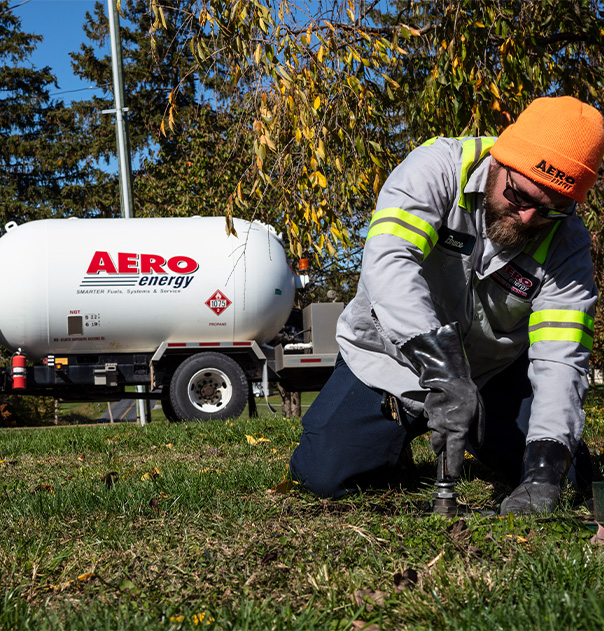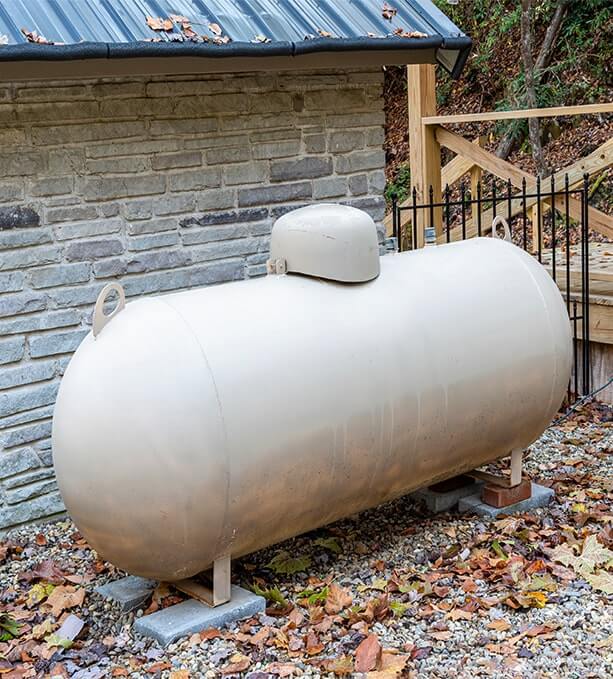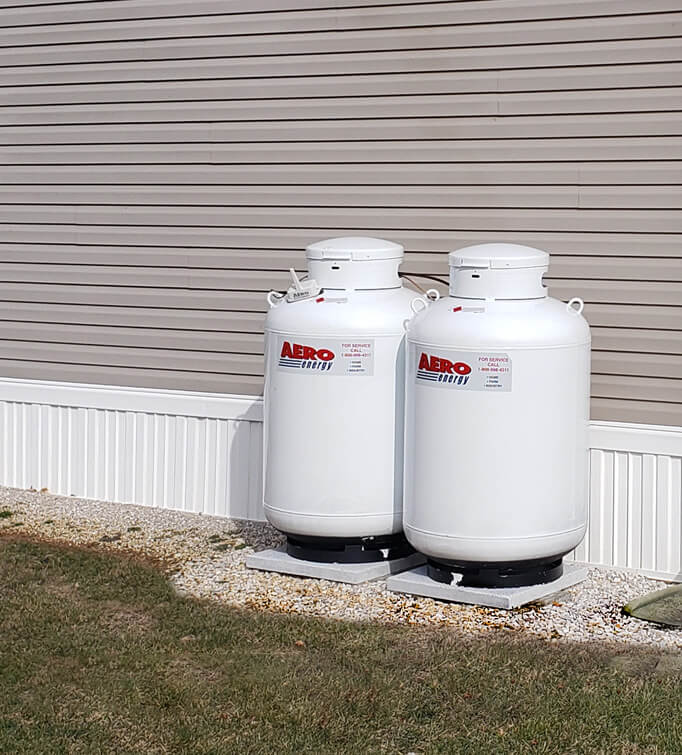
Propane Safety And Tank Ownership
Propane’s popularity as a fuel source stems from its relatively inexpensive price, its overall versatility and its clean burning nature. As a result, propane has a very strong foothold in the U.S. across residential and commercial applications. We want to make sure that all of our existing and future customers understand the “Do’s, Don’ts and What-Ifs” of Propane Safety and Tank Ownership so we’ve outlined the basics below:

The Do’s
- Have a pressure and leak test conducted if you install a new tank or your existing tank runs empty. This test is designed to keep you safe and will save you money in the long run if a leak is detected. Aero Energy conducts these tests routinely and would be happy to help you with this!
- Understand the energy regulations that apply to your community. There are often different regulations county by county and it’s important that you partner with a provider who will ensure you are in compliance with the law.
- Have your anode bag regularly tested by your energy company. Anode bags serve to prolong the lifespan of your tank and will help minimize the possibility of a leak.
- Keep proof of tank ownership if you have purchased your own tank. This will be essential documentation to present prior to a new company delivering to your tank.
The Don’ts
- Do not run out of gas. Most propane tanks are equipped with a tank gauge that indicates how full it is. As a homeowner you bare a responsibility to intermittently check your gauge to make sure you have enough fuel. Getting in a regular habit of checking your levels will help to prevent you from running out of fuel during the winter. If you can avoid run-outs, you won’t have to pay additional fees associated with pressure and leaks tests and emergency fill ups. When you become an Aero Energy customer, we’ll set you up with an Aero Tank Monitor which will allow you to check your levels from the convenience of your smart phone.
- Do not allow another energy company to fill your tank if it is being loaned to you by your current provider. This is illegal.
- Do not bring propane cylinders indoors. Not only is this illegal, but it also causes a very significant safety hazard for both yourself and those around you.

The What Ifs
- “What if I smell propane?” – If you smell propane there is a good chance that your tank has a leak.
- If you see a cloud or mist around your tank- You should evacuate immediately to a safe location and call 911.
- If there is no cloud or mist- call your energy provider. If at all possible, turn off the tank. Immediately extinguish any open flames. Do not turn on or off any electrical appliances or switches. Ventilate the area by opening a window. Leave the premises and go to a safe location until its deemed safe to return.
- “What if I want to paint my propane tank so it’s more decorative?” – We advise that you refrain from this. While most counties have regulations that govern against this behavior, it is important to understand that propane tanks are sensitive to temperature change. The characteristic reflective white coloring is to ensure that the tank does not overheat in the sun.
- “What if I run out of propane?” – Most companies such as Aero Energy do offer emergency deliveries. You do run the risk that your tank has a leak though and you should undergo the proper precautions of a pressure and leak test before having your tank filled.
Live in a piped propane community? Download Excess Flow Valve Regulation information here.
Download information on corrugated stainless steel tubing and how it may impact propane homes here.
We always recommend https://www.propane101.com as a great resource for individuals looking for more information, but please feel free to give us a call at 1-800-998-4311 if you have specific questions we can answer for you about tank ownership or safety considerations.
